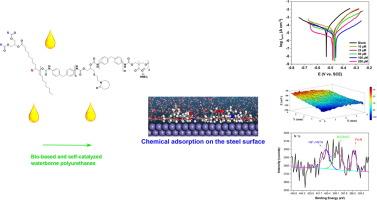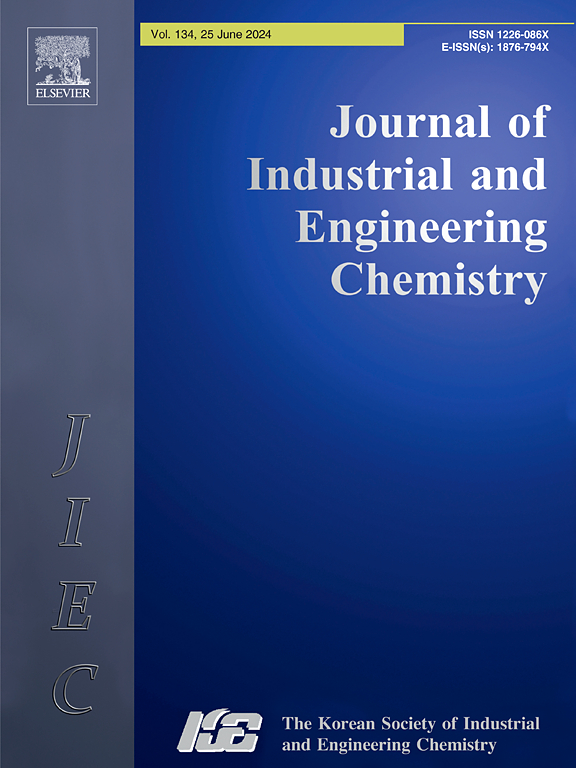Bio-based and self-catalyzed waterborne polyurethanes as efficient corrosion inhibitors for sour oilfield environment
Abstract
Sunflower oil was used as environmentally friendly source to develop novel self-catalyzed waterborne polyurethanes (WPUs) as efficient corrosion inhibitors for sour oilfield solution. A comprehensive experimental and computational analysis was performed to evaluate the inhibition effect of WPUs. The results of electrochemical measurements indicated that 200 µM of WPUs were effectively protected mild steel from sour corrosion by 95% and 94.6% at 25 °C and 60 °C, respectively. Furthermore, it was found that the best inhibition efficiency was provided by WPU when pyrrolidine was included in its structure, particularly at 60 °C. Additionally, a smoother steel surface was observed in the presence of WPUs, indicating the adsorption of the polyurethane molecules on the metal surface. The results of X-ray photoelectron spectroscopy further confirmed the chemical adsorption of WPUs on the surface of mild steel. Moreover, scanning Kelvin probe microscopy revealed that the potential distribution of the steel surface was shifted to the negative values, which show the adsorption of the inhibitor on the surface and inhibition of the corrosion process. Besides, high values of adsorption energy were achieved for WPUs using molecular dynamic simulation, indicating their spontaneous adsorption to the Fe (110) surface. The maximum adsorption energy of −794.9 kcal/mol was obtained for WPU3, which is consistent with experimental data. These results show that sunflower oil can be considered a potential source to develop self-catalyzed polyurethanes under mild conditions as effective corrosion inhibitors for sour environment.


 求助内容:
求助内容: 应助结果提醒方式:
应助结果提醒方式:


